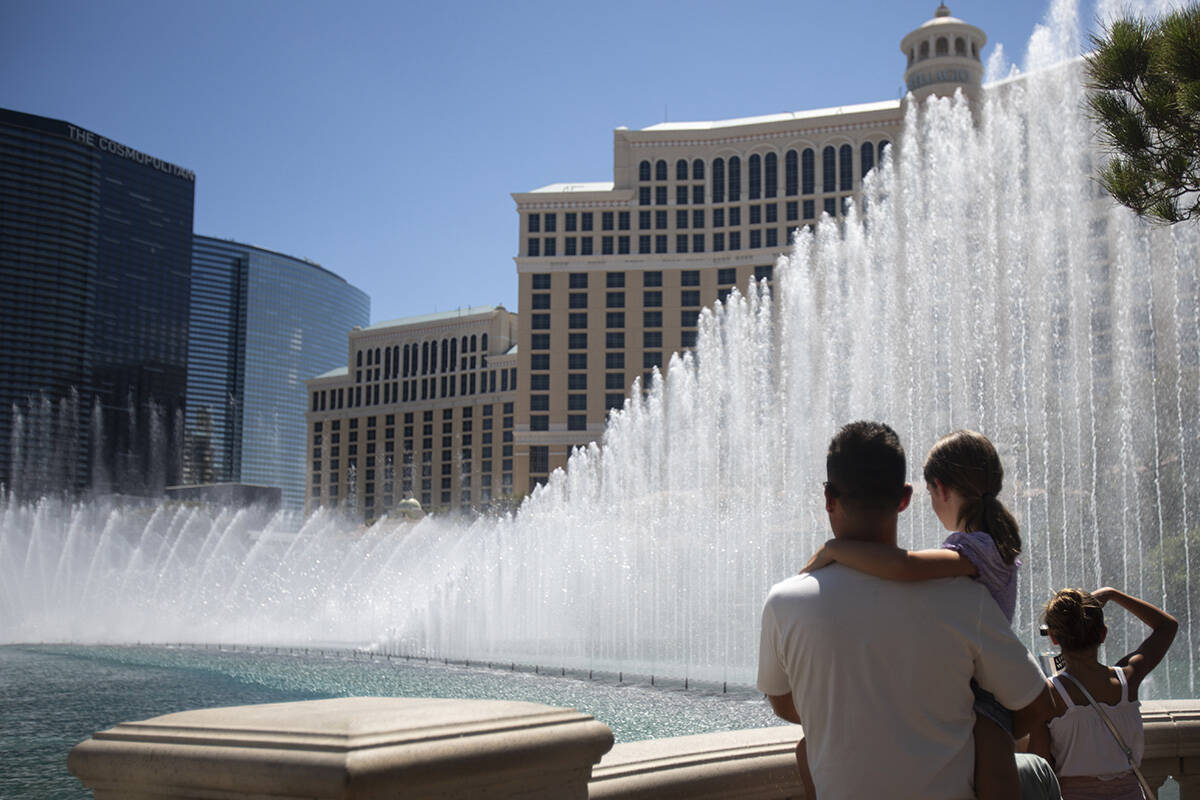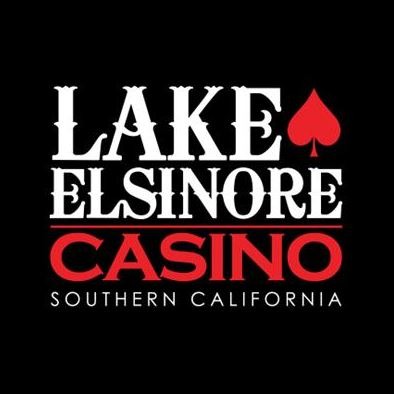Athol Daily News – UMass report finds state’s casino impacts mostly positive
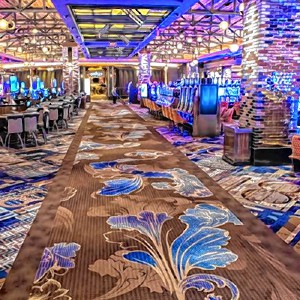
AMHERST — Massachusetts’ three resort casinos are largely having a positive impact on the state’s economy, even as a downturn in business for restaurants and bars in and around Springfield may be attributed to visitors who are playing the slot machines and gaming tables at MGM Springfield are also drinking and dining there. “In aggregate, this was a very smart decision to create domestic casinos,” Robert Williams, a clinical psychologist and professor of health sciences at the University of Lethbridge in Alberta, Canada, told the Massachusetts Gaming Commission at a virtual meeting Thursday. Williams and Rachel Volberg, research professor of epidemiology in the School of Public Health and Health Sciences at the University of Massachusetts, are the principal investigators for an initiative called Social and Economic Impacts of Gambling in Massachusetts, with a summary of a 194-page report titled “Social and Economic Impacts of Casino Introduction to Massachusetts” presented to the commission. “It’s rare: Usually it’s a mix of negative social impacts plus positive economic impact, and here we have really negligible social impacts and really significant economic impacts,” Williams said. “So this is a good news story for Massachusetts.” The latest report from SEIGMA, research that so far has received $17.5 million in funding, synthesizes the findings from 55 interim reports and academic publications, beginning in 2013, two years before the arrival of Plainridge Park Casino and five years before MGM Springfield opened. The third casino is Encore Boston Harbor. “We wanted to do a comprehensive look back and try to understand 10 years of impacts that we’ve been monitoring, with an eye to setting the groundwork for looking at sports betting going into the future,” Volberg said in a statement. Impact on local businesses, jobs What is concerning for Volberg are the economic challenges identified in the report, which show that between 46% and 80% of casino patrons said they spent less on other goods and services, particularly in restaurants and bars. “So (casinos) have had a negative impact for other businesses in terms of where leisure dollars are being spent,” Volberg said. Mark Melnik, who leads the SEIGMA economic team at the UMass Donahue Institute, is also worried about this aspect, as the report shows about three-quarters of casino employees left other full-time jobs, resulting in a loss of workforce in other sectors. Also, only 39% of casino employees earn a living wage for their county, though this is higher than typical for the accommodations and food services sector. “Businesses in the recreation and leisure sectors of the economy always compete for the disposable income of consumers,” Melnik said. “While the Massachusetts casinos attract new consumers from outside of the state, it is not surprising to see some level of competition for both labor and customers in this industry sector.” Williams told the commissioners that these impacts are “potentially due to cannabilization.” The report notes that overall casino patronage in Massachusetts appears to be declining, mirroring a nationwide trend, and Williams said the researchers have also found attitudes toward gambling growing more negative among residents, with 68% of respondents saying gambling is too widely available. “A much larger proportion of Massachusetts residents in more recent years believe that gambling is too widely available,” Volberg said. “So the message to the Legislature would be to slow their roll on legalizing any other type of gambling.” In fact, a recommendation in the report suggests that while legislation allows for an additional casino property to be licensed, Massachusetts may have reached casino saturation. Revenues The positive impacts of casinos that Volberg and the SEIGMA team identified were primarily economic, including employment opportunities and tax and other revenues. Construction costs for the three casinos totaled $2.8 billion, and more than 8,000 workers were employed full time. The casinos employ about 5,000 people and generate about $1.15 billion in annual gross gaming revenue, as well as about $321 million in annual non-gaming revenue. State revenue from gaming taxes has increased from $78 million in budget year 2016 to $330 million in budget year 2023. And that revenue supports 12 funds, the largest of which is passed on to Massachusetts’ 351 municipalities. The report notes the state had been seeing a net loss of $665 million in revenue to out-of-state casinos, which has been reduced to $360 million, so the state is recapturing money that had been lost, with MGM Springfield being a main driver of this. “Overall, the three casinos have generated a significant amount of economic activity, both during the construction and operational phases of the casinos,” Melnik said. “Further, the facilities provided resilience during the post-COVID recovery period.” The report notes one positive social and health impact as the new recreational opportunities associated with the casinos. Negatives “We also identified a number of significant negative impacts,” Volberg said. “And, as we anticipated, these were primarily not monetary.” Negative social and health impacts include an increase in vehicle traffic volume, accidents and impaired driving near the casinos, though not generally Springfield, as well a small increase in certain crimes at and near the casinos, and a “small but significant” statewide increase in illegal gambling. In Springfield and surrounding communities, there was a drop in both property crime and violent crime between 2014 and 2019, which fell by by 26.7% and 9.3%, respectively. One key finding from the 10 years of research is that the prevalence of problem gambling has shown no significant increase since casinos opened in Massachusetts. However, the report does reveal that the percentage of casino revenues derived from problem and at-risk gamblers rose from 74% in 2013-14 to 90% in 2021-22. “The biggest negative impact from our perspective is that most of the revenues generated by the casinos come from people who are at risk for or experiencing gambling problems,” Volberg said. The research team developed its recommendations based on the overall findings, including ways to reduce the reliance on 10% of the population, problem gamblers or those at risk of becoming problem gamblers, for 90% of
Woman kicked out of casino for not having her service dog
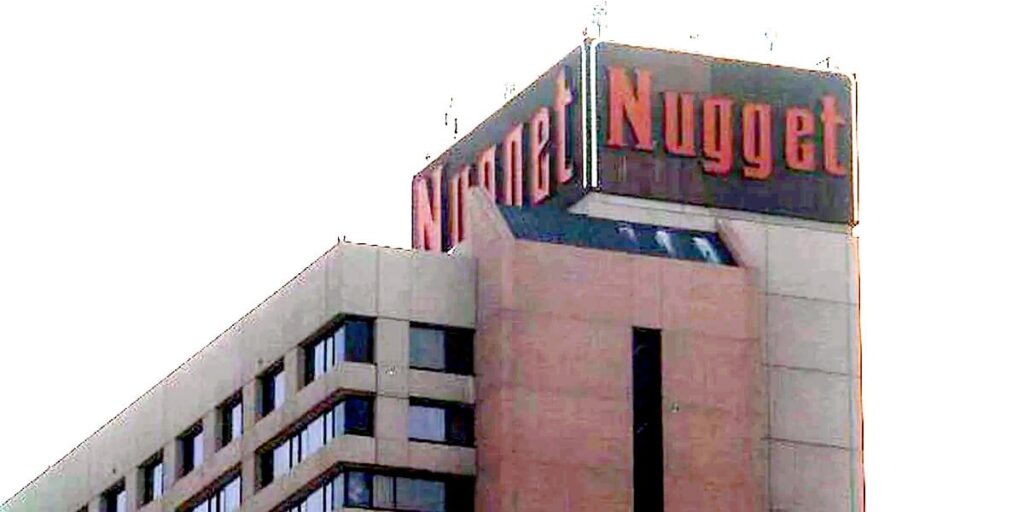
RENO, Nev. (KOLO/Gray News) – A woman in Nevada was recently kicked out of a casino for not having her service dog. Heather Vanus said she’s been a regular at the Nugget Casino resort in Reno for the last three years. She and her medical dog Cherry will visit the casino some weeks up to four or five times a week. Cherry is trained to alert Vanus if she’s about to have a seizure. “They know who we are. When we come in they automatically bring me water for my dog,” Vanus said. What is typically a home-away-from-home atmosphere for Vanus quickly changed two weeks ago, when a security guard approached her and said to leave because Cherry was not present. “They said you can either remove yourself, or you can leave in cuffs,” Vanus said. “After it happened, my fiancé looked at me and asked if that really just happened.” Vanus said she didn’t take Cherry that day because she had just gotten fixed. She felt like it was safe to leave her service dog at home since she was with her fiancé at the casino if she had a medical emergency. “Security told me that if she stayed at home, then I should have stayed at home with her,” Vanus said. Vanus considered the Nugget her safe place and adds that not being able to see her friends there has been heartbreaking. Now, all she wants is an apology and for the Nugget to educate their staff on how to handle others with medical dogs. “Maybe this will make a difference because sometimes staff just isn’t trained,” Vanus said. The Nugget Casino issued the following statement in response to the incident: “The Nugget Casino Resort is fully committed to complying with all ADA requirements, and we welcome all guests with disabilities who use service animals. Service animals are always welcome at our property, and our team is trained to ensure that all guests are treated with respect and in accordance with federal and state laws. While we can’t comment on specific incidents, we remain dedicated to offering an inclusive environment for all our guests.” Copyright 2024 KOLO via Gray Local Media, Inc. All rights reserved. Source link
Charles Barkley says he’s ‘never leaving Phoenix alive,’ eventually wants ashes spread in Las Vegas casino
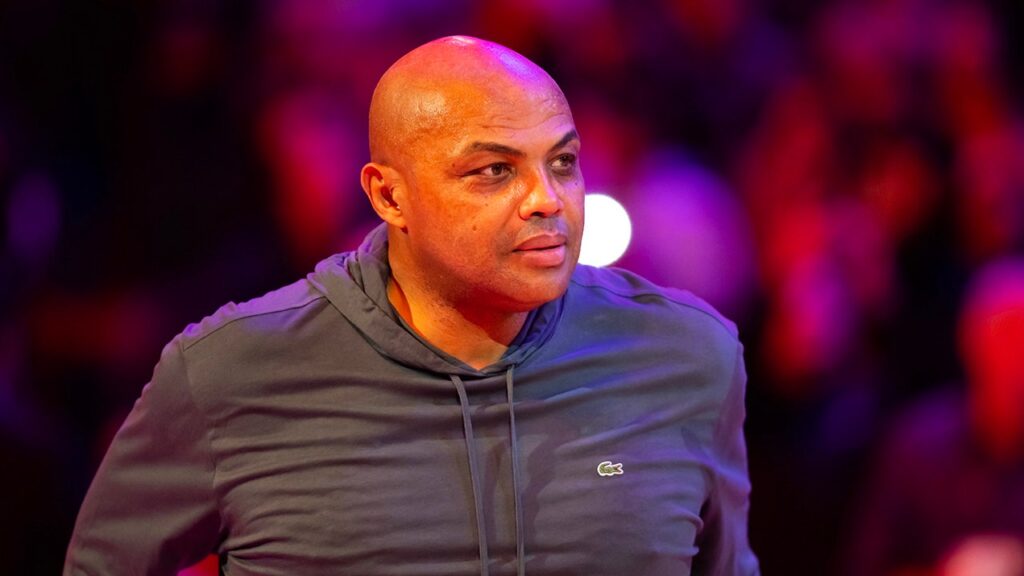
Charles Barkley started his NBA career with the Philadelphia 76ers, but he was introduced to Phoenix in 1993, when he began playing for the Suns. Barkley has maintained a residence in the Phoenix area ever since. While the 61-year-old basketball TV analyst has recently undergone a drastic weight loss in an effort to be as healthy as possible, he has also given some thought to his final wishes. During an appearance on Arizona Sports, Barkley said he ultimately does not want to leave Phoenix without being cremated. The next step of his request involves some of his ashes being spread in Phoenix, as well as a Las Vegas casino. CLICK HERE FOR MORE SPORTS COVERAGE ON FOXNEWS.COM Phoenix Suns former player Charles Barkley in attendance at Footprint Center in Phoenix on Jan. 21, 2023. (Mark J. Rebilas-USA TODAY Sports) “I love living in Phoenix; I’m never leaving Phoenix alive,” Barkley said. “When I leave Phoenix, they’re gonna cremate my fat a–. “… My a– is so big, I’m like, I want some ashes in Alabama, I want some ashes in Phoenix and I want the rest at a casino in Vegas. We just got to pick out which casino.” CHARLES BARKLEY REVERSES RETIREMENT DECISION, VOWS TO STAY WITH TNT LONG-TERM: ‘THIS IS THE ONLY PLACE FOR ME’ While the Hall of Famer has experienced his fair share of good fortune on the basketball court, the odds were often not in his favor when he was at a gambling table. Earlier this year, Barkley told Pro Football Hall of Famer Shannon Sharpe that he lost an estimated $25 million of his fortune due to gambling. Charles Barkley talks with the media prior to Game Four of the 2024 NBA Finals between the Dallas Mavericks and the Boston Celtics at American Airlines Center on June 14, 2024 in Dallas. (Stacy Revere/Getty Images) “There’s probably been seven times that I won a million dollars,” he said. “But there’s probably been 25 times I’ve lost a million,” he said on a May episode of Sharpe’s “Club Shay Shay” podcast. “I had to change my mentality because you can never break the casino, [but] they can break your a–.” College basketball analyst Charles Barkley on air before the NCAA Men’s Basketball Tournament Final Four championship game. (Mitchell Layton/Getty Images) Barkley played in the NBA for 16 seasons. During that time, he said he believes he suffered around $10 million in gambling losses. He has spent more than two decades as one of the stars of TNT’s popular “Inside the NBA” program. CLICK HERE TO GET THE FOX NEWS APP In July, Barkley revealed that his contract with the network was worth $210 million. He made the comments shortly after the NBA rejected a bid from Warner Bros. Discovery, TNT’s parent company, to exercise its right to match an offer from Amazon for a part of the league’s 11-year, $76 billion media rights deal. At the time, Barkley contemplated retiring from broadcasting. However, he ultimately announced he would return to TNT for the 2024-25 NBA season. Follow Fox News Digital’s sports coverage on X, and subscribe to the Fox News Sports Huddle newsletter. Chantz Martin is a sports writer for Fox News Digital. Source link
Stakelogic slots now live with Stanleybet Romania – Casino & games

Stanleybet.ro players in Romania can now play Stakelogic’s award-winning content. Stakelogic, the industry-leading provider of casino content, has today announced that it has integrated its entire portfolio of award-winning slot content onto Stanleybet Romania. Over the last few years, Stakelogic has made huge strides within the Romanian market and this latest partnership only looks to strengthen this strategic foothold. On the Stanleybet platform, players can now look forward to playing some of the most immersive and exciting casino games such as Stone Gaze of Medusa, Gemstone Mine and Big Sugar Bonanza. Stanleybet has quickly established itself as a prominent name in the Romanian market among players and it has earned an enviable reputation for its commitment to delivering engaging and immersive casino content to its players. Neil Tanti, senior sales manager at Stakelogic said: “Stanleybet Romania has quickly established itself as a prominent name in the Romanian market and has garnered a reputation for providing Romanian players with a fantastic destination for great game content. “Players of the casino have come to expect engaging and immersive slot content which is why our games will be a great addition to Stanleybet.ro’s casino lobby and we are really excited for the future of this collaboration.” Catalin Moise, COO at Stanleybet Romania said: “We have been impressed by Stakelogic’s approach to slot innovation which aligns perfectly with our mission to provide players with the best possible experience.” Source link
Bovada Fined $50K in Tennessee, Offshore Casino Unlikely to Pay
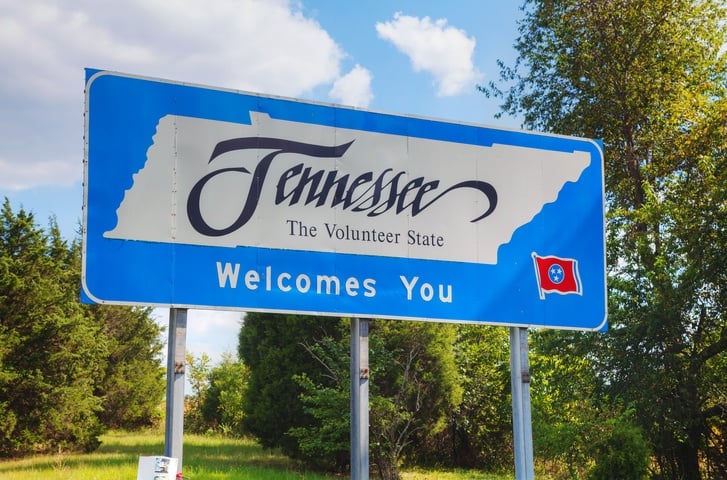
Posted on: October 25, 2024, 12:37h. Last updated on: October 24, 2024, 05:41h. Bovada, an illegal online casino and sports betting platform that targets players in the United States, has been fined $50,000 by a state agency in Tennessee. Tennessee welcomes most to the Volunteer State, but not illegal gambling websites. The state’s sports betting regulatory this week fined Bovada, one such rogue offshore gambling operation, $50,000. (Image: iStock) The Tennessee Sports Wagering Council is responsible for regulating online sports betting and fantasy sports in the Volunteer State. On Wednesday, the state gaming regulatory took action against Bovada for operating an unlicensed and therefore illegal sportsbook. The agency says Bovada failed to comply with a previously sent cease-and-desist letter. Despite claiming to abide by the order and have exited Tennessee, state gaming officials say their investigators were able to continue making wagers on the Bovada sportsbook platform as recently as Oct. 16. Tennessee’s Sports Gaming Act warrants the council to impose fines on unlicensed sportsbooks illegally taking bets from bettors inside the state. The law authorizes a $10,000 fine for the first offense, $15,000 for a second offense, and $25,000 for subsequent offenses If Bovada doesn’t immediately close its online sportsbook to people in Tennessee, the council is authorized to impose further $25,000 penalties. Users Encouraged to Close Accounts Though Bovada dupes U.S. consumers by marketing on its website that it’s a “top USA-based gambling and sports betting website,” nothing could be further from the truth. The rogue offshore gambling network is run from its headquarters in Curacao, a Caribbean island friendly to iGaming companies. Bovada claims it operates lawfully online through an interactive casino and sports betting license issued by the Anjouan Gaming Board, a small volcanic island country between southeastern Africa and Madagascar in the Indian Ocean. U.S. consumers who participate on sites like Bovada and other offshore online casinos and sportsbooks have no player protections like guarantees that their wins will be paid, withdrawals will be facilitated, and their account finances are secure. Along with issuing Bovada a $50,000 fine for violating Tennessee law, the council encouraged anyone in the state with an active account on the site to immediately withdraw their funds and close their account. The Sports Wagering Council recommends that Tennessee users of Bovada withdraw their funds immediately. Our primary role is the protection of the public interest through a safe, regulated environment, and Tennessee sports bettors need to know that just because they can access a sports betting website or app inside Tennessee’s borders does not mean it is licensed to do business here,” said Sports Wagering Council Executive Director Mary Beth Thomas. “Legal sportsbook operators provide important bettor protections not found in the illegal market. If an individual wagers with unlicensed sportsbooks, their sensitive financial and personal information may not be protected and could even be shared with criminal enterprises. The bettor’s money could be withheld or disappear without a way to recover it,” the council’s statement added. Tennessee is only home to mobile sports betting — not in-person wagering, as the state does not have any commercial or tribal casinos. Payment Unlikely With Bovada’s offices 9,000 miles away from Tennessee, the odds seem long that the Sports Wagering Council should expect a $50,000 check anytime soon. Bovada primarily deals in cryptocurrency. However, the state gaming agency says it’s “working closely” with a network of federal and state law enforcement agencies “to eradicate illegal sportsbooks such as Bovada and others.” Bovada has received numerous cease-and-desist letters in recent months. On its website, the offshore gaming operator says it doesn’t accept bets or customers from Colorado, Connecticut, Delaware, Kansas, Louisiana, Maryland, Massachusetts, Michigan, Nevada, New Jersey, New York, Ohio, Pennsylvania, Washington, D.C., or West Virginia. Source link
ALL-OUT! Sahara Will Be 7th Vegas Strip Casino to Fold Poker Room in 5 Years
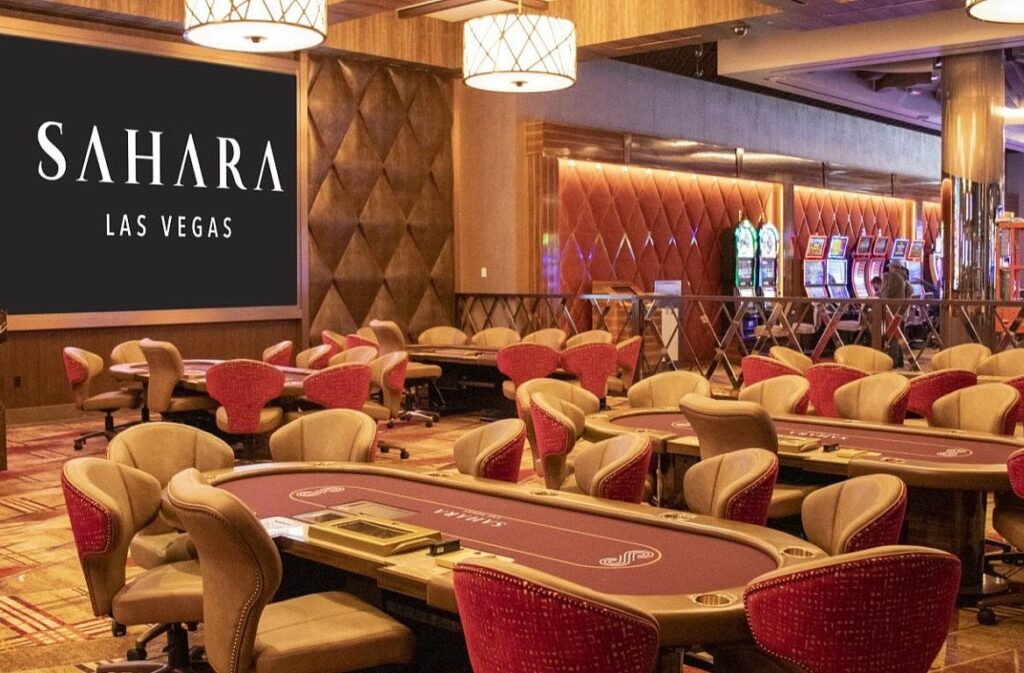
Posted on: October 24, 2024, 09:24h. Last updated on: October 24, 2024, 10:12h. The Sahara will close its poker room on Nov. 16, replacing the space with more slot machines. The Sahara’s poker room will close on Nov. 16. (Image: Sahara) “When it debuts in mid-December, the enhanced offerings will include dedicated slot banks where players can be some of the first in Las Vegas to play the newest test games from top gaming content providers,” read a press statement from Sahara GM Paul Hobson. The Sahara’s original poker room closed in April 2011. When the SLS took over the property in 2014, it did not include a poker room. After the property reverted to the Sahara again, it opened a new poker room in February 2020. This will make the Sahara the seventh Las Vegas Strip casino to permanently fold its poker tables in the past five years. Here’s a timeline: March 2020: The Excalibur closes its poker room due to the pandemic and never reopens it. It now uses the area for slot tournaments. The Tropicana and Mirage follow suit, never reopening theirs. June 2020: Harrah’s closes its poker room, turning it initially into a nonsmoking slot area and later into space for electronic table games after the pandemic. July 2021: Planet Hollywood closes its poker room, transforming it into space for more slots and games. November 2021: The Flamingo closes its poker room, converting it into a sportsbook fan zone. Elsewhere in Las Vegas over the same period, Binion’s, the Cannery, Silver Sevens and Club Fortune also closed their poker rooms, and Green Valley Ranch converted theirs into a sports viewing area. Earn and Turn It’s not that poker is no longer popular. Although it doesn’t draw like it did at its peak two decades ago, most rooms on the Strip are reported to be at least half-full every night. The Sahara currently runs four poker tournaments daily, which it wouldn’t be doing if no one showed up. The issue is that poker doesn’t earn as much for casinos as table games or machines do. And that’s because the game provides no edge to the house. Casino do not directly benefit from player losses. In poker, all the casino earns is its rake, a small percentage taken from each pot in cash games, or tournament fees. Per square foot, poker is a losing proposition for casinos, relatively speaking. Food Hall-Adjacent What most tourists see as an unrelated simultaneous trend — casinos replacing beloved (formerly cheap) buffets with expensive food halls — is not all that unrelated. Buffets are on their way out for the same reason: They’re not money-makers, whereas food halls are. Poker rooms may even be more of a target than buffets, because they draw players away from the casino floor for hours and hours at a clip. Those are prime gambling hours when players could be losing to casinos instead of only to one another. And once players finally exit poker rooms, most do so cash-poor, exhausted and with little urge to gamble more. This is believed to be the real reason the Venetian moved its poker room far away from its casino floor this summer, to a hidden corner on the second floor of the Grand Canal Shoppes. Great Caesars’ Poker Ghost And, as if this isn’t bad enough news for poker players, many industry insiders believe that Caesars Palace will be the next casino to evict its poker room — which would make it the fourth Caesars Entertainment property in five years to do so. Caesars Palace has never not had a poker room since it opened in August 1966, by the way. Although Caesars Entertainment said it closed its poker room in August to make space for slot machines while renovating its high-limit slot area, no reopening date has yet been set. Source link
No Water in the Sahara!
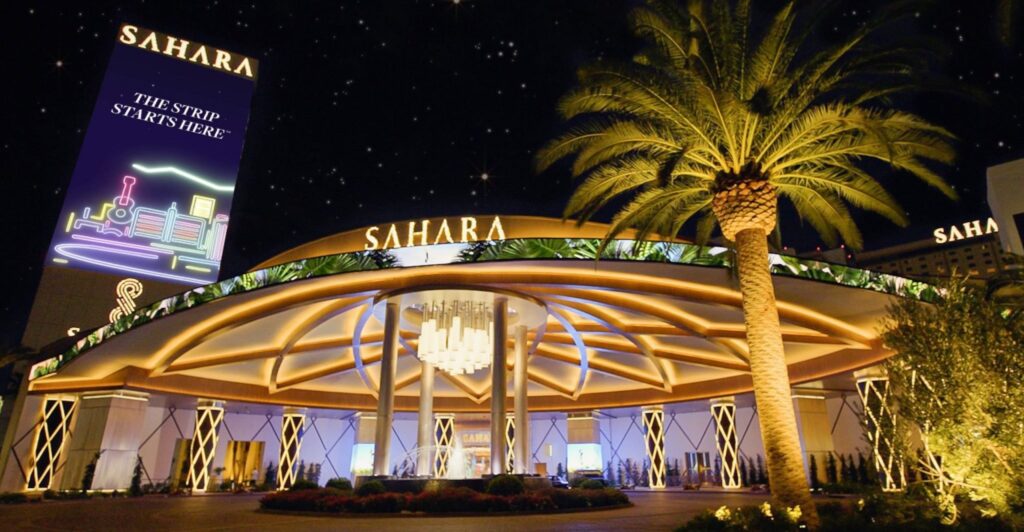
Posted on: October 24, 2024, 05:25h. Last updated on: October 24, 2024, 06:04h. Of all the Las Vegas casino resorts to run out of water, it’s beyond ironic that it would be the one named after the world’s most famous desert. But the north Strip property has been as bone dry as the actual Sahara since Wednesday afternoon, according to videos posted to social media. The Sahara currently has no water, just like its namesake. (Image: Sahara Las Vegas) “The toilets aren’t working in the guest rooms, obviously,” noted X/Twitter account @LasVegasLocally at 11 a.m. Thursday, retweeting a video of a non-operational toilet. “Some people are using buckets of water from the pool to flush the toilets.” A water main breach that occurred during surveying work is to blame, according to a statement issued by the Sahara on Thursday at 2:30 p.m. “As a result, we have been experiencing intermittent issues with our water services while we work to repair the breach,” the statement read. “Guests have access to complimentary bottled water on every floor at the elevator lobby for any immediate needs, as well as complimentary refreshments and breakfast items in the lobby as restaurants remain temporarily closed.” Twitter user @CommuterMoe, who posted that he “booked another room elsewhere” when confronted with the situation on Thursday morning, posted a photo of staff handing out free bottled water and oranges. “Sorry your toilet is full of poo and you can’t shower,” commented @golly_whata-day beneath the post. “Enjoy an orange.” Added @mzchocolato: “So where are the staff using the bathrooms and where are they washing their hands?” According to Clark County, a portion of southbound Paradise Road behind the Sahara was closed to clean up water and muck from the water main break. “Sahara is working diligently to resolve the issue,” the resort’s statement concluded. However, the issue was still unresolved at 3 p.m. Thursday, as evidenced by the continued closure of bathrooms on the casino floor. Source link
Daily Hampshire Gazette – UMass report finds state’s casino impacts mostly positive
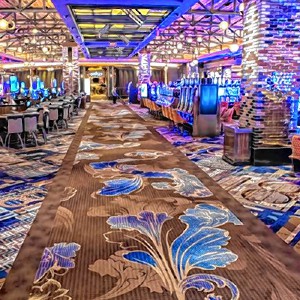
AMHERST — Massachusetts’ three resort casinos are largely having a positive impact on the state’s economy, even as a downturn in business for restaurants and bars in and around Springfield may be attributed to visitors who are playing the slot machines and gaming tables at MGM Springfield are also drinking and dining there. “In aggregate, this was a very smart decision to create domestic casinos,” Robert Williams, a clinical psychologist and professor of health sciences at the University of Lethbridge in Alberta, Canada, told the Massachusetts Gaming Commission at a virtual meeting Thursday. Williams and Rachel Volberg, research professor of epidemiology in the School of Public Health and Health Sciences at the University of Massachusetts, are the principal investigators for an initiative called Social and Economic Impacts of Gambling in Massachusetts, with a summary of a 194-page report titled “Social and Economic Impacts of Casino Introduction to Massachusetts” presented to the commission. “It’s rare: Usually it’s a mix of negative social impacts plus positive economic impact, and here we have really negligible social impacts and really significant economic impacts,” Williams said. “So this is a good news story for Massachusetts.” The latest report from SEIGMA, research that so far has received $17.5 million in funding, synthesizes the findings from 55 interim reports and academic publications, beginning in 2013, two years before the arrival of Plainridge Park Casino and five years before MGM Springfield opened. The third casino is Encore Boston Harbor. “We wanted to do a comprehensive look back and try to understand 10 years of impacts that we’ve been monitoring, with an eye to setting the groundwork for looking at sports betting going into the future,” Volberg said in a statement. Impact on local businesses, jobs What is concerning for Volberg are the economic challenges identified in the report, which show that between 46% and 80% of casino patrons said they spent less on other goods and services, particularly in restaurants and bars. “So (casinos) have had a negative impact for other businesses in terms of where leisure dollars are being spent,” Volberg said. Mark Melnik, who leads the SEIGMA economic team at the UMass Donahue Institute, is also worried about this aspect, as the report shows about three-quarters of casino employees left other full-time jobs, resulting in a loss of workforce in other sectors. Also, only 39% of casino employees earn a living wage for their county, though this is higher than typical for the accommodations and food services sector. “Businesses in the recreation and leisure sectors of the economy always compete for the disposable income of consumers,” Melnik said. “While the Massachusetts casinos attract new consumers from outside of the state, it is not surprising to see some level of competition for both labor and customers in this industry sector.” Williams told the commissioners that these impacts are “potentially due to cannabilization.” The report notes that overall casino patronage in Massachusetts appears to be declining, mirroring a nationwide trend, and Williams said the researchers have also found attitudes toward gambling growing more negative among residents, with 68% of respondents saying gambling is too widely available. “A much larger proportion of Massachusetts residents in more recent years believe that gambling is too widely available,” Volberg said. “So the message to the Legislature would be to slow their roll on legalizing any other type of gambling.” In fact, a recommendation in the report suggests that while legislation allows for an additional casino property to be licensed, Massachusetts may have reached casino saturation. Revenues The positive impacts of casinos that Volberg and the SEIGMA team identified were primarily economic, including employment opportunities and tax and other revenues. Construction costs for the three casinos totaled $2.8 billion, and more than 8,000 workers were employed full time. The casinos employ about 5,000 people and generate about $1.15 billion in annual gross gaming revenue, as well as about $321 million in annual non-gaming revenue. State revenue from gaming taxes has increased from $78 million in budget year 2016 to $330 million in budget year 2023. And that revenue supports 12 funds, the largest of which is passed on to Massachusetts’ 351 municipalities. The report notes the state had been seeing a net loss of $665 million in revenue to out-of-state casinos, which has been reduced to $360 million, so the state is recapturing money that had been lost, with MGM Springfield being a main driver of this. “Overall, the three casinos have generated a significant amount of economic activity, both during the construction and operational phases of the casinos,” Melnik said. “Further, the facilities provided resilience during the post-COVID recovery period.” The report notes one positive social and health impact as the new recreational opportunities associated with the casinos. Negatives “We also identified a number of significant negative impacts,” Volberg said. “And, as we anticipated, these were primarily not monetary.” Negative social and health impacts include an increase in vehicle traffic volume, accidents and impaired driving near the casinos, though not generally Springfield, as well a small increase in certain crimes at and near the casinos, and a “small but significant” statewide increase in illegal gambling. In Springfield and surrounding communities, there was a drop in both property crime and violent crime between 2014 and 2019, which fell by by 26.7% and 9.3%, respectively. One key finding from the 10 years of research is that the prevalence of problem gambling has shown no significant increase since casinos opened in Massachusetts. However, the report does reveal that the percentage of casino revenues derived from problem and at-risk gamblers rose from 74% in 2013-14 to 90% in 2021-22. “The biggest negative impact from our perspective is that most of the revenues generated by the casinos come from people who are at risk for or experiencing gambling problems,” Volberg said. The research team developed its recommendations based on the overall findings, including ways to reduce the reliance on 10% of the population, problem gamblers or those at risk of becoming problem gamblers, for 90% of
4 arrested after illegal casino busted in East Oakland neighborhood
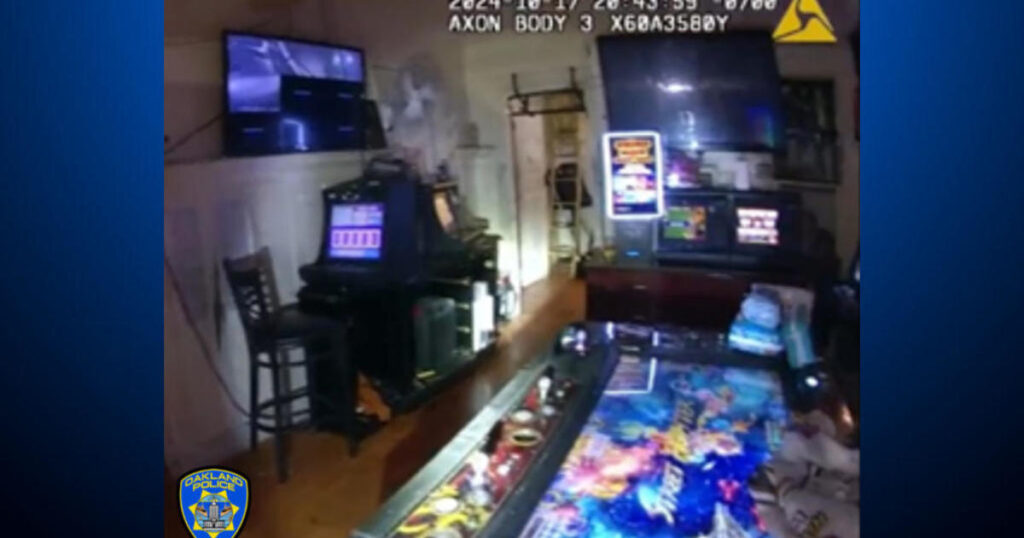
PIX Now – Morning Edition 10/24/24 PIX Now – Morning Edition 10/24/24 11:13 Police in Oakland arrested four people following the bust of an alleged illegal gambling operation in East Oakland last week. On Oct. 17, officers from the Special Resources Section West and Vice Unit served a warrant at a location the 1400 block off 17th Avenue, near International Boulevard. Police served the warrant following multiple complaints from residents. During the search, police located multiple illegal casino gaming machines and an undisclosed amount of cash, along with three firearms, ammunition and narcotics. In front of the property, police towed several vehicles that were determined to be stolen. Four people who were found inside the location were arrested for various warrants. Police did not release their names or what charges they are facing. Footage from police showing what they said was an illegal casino on the 1400 block of 17th Avenue in East Oakland, Oct. 17, 2024. Oakland Police Department “The department and City of Oakland will seek criminal and civil accountability for those involved in this illegal and dangerous operation, which has contributed to blight in the neighborhood,” police said in a statement Thursday. Anyone with additional information about the case is asked to contact the department’s General Crimes Unit by calling 510-238-3728. Tim Fang Tim Fang is a digital producer at CBS Bay Area. A Bay Area native, Tim has been a part of the CBS Bay Area newsroom for two decades and joined the digital staff in 2006. Source link
Casino, lottery scholarship ballot issues simple –

By STEVE BRAWNER Elections can be complicated. This year’s two proposed constitutional amendments aren’t. The more high-profile one is Issue 2, which was initiated by citizens who collected signatures to qualify for the ballot. It would do two things. First, it would revoke Pope County’s casino license. Second, it would require all future licenses approved by voters statewide to be subject to a following special election in the county where the casino would be located. The initiative is coming six years after Arkansans voted to allow the Arkansas Racing Commission to approve four licenses – one each in Garland, Crittenden, Jefferson and Pope Counties. The first three casinos have long since opened at Oaklawn in Hot Springs, Southland Casino Hotel in West Memphis, and Saracen Casino Resort in Pine Bluff. But while 54% of voters statewide approved the casino amendment in 2018, 61% of Pope County residents voted against it. Majorities in those other three counties voted for it. Garland and Crittenden counties are no strangers to gambling as the homes of the state’s horse and dog racing tracks. (Greyhounds no longer race in West Memphis.) Both facilities basically had casinos for years; they just didn’t have anyone dealing cards until the 2018 amendment passed. The Racing Commission awarded the license in Pope County to Cherokee Nation Entertainment in July after a protracted legal battle. The planned $300 million Legends Resort Casino in Russellville would include a 50,000-square-foot casino along with a hotel, event space, outdoor waterpark and outdoor entertainment venue. The campaign says it will create 1,000 jobs and have an economic impact of $5 billion over 10 years. Some Pope County residents actively have opposed the casino since that 2018 election. The group backing the amendment, Local Voters in Charge, argues that a county’s residents should be the final judge about whether a casino should be located in their backyard. Meanwhile, some local residents do support the casino, including County Judge Ben Cross. He originally opposed it but has become an outspoken convert. The issue pits two casino-operating Native American tribes against each other. Local Voters in Charge’s $8.8 million in campaign funding has come from the Choctaws, who operate eight casinos in neighboring Oklahoma and tried unsuccessfully to win the Pope County license. The Cherokees, meanwhile, have donated $11.6 million to Investing in Arkansas, the committee seeking to keep their casino. A Talk Business & Politics-Hendrix College poll of 696 likely voters in September found that 42% favored Issue 2 while 28% were opposed and 30% were undecided. (https://talkbusiness.net/2024/09/poll-arkansas-ballot-issue-support-ranges/) Surely that undecided percentage has fallen since then. The election comes down to two questions. First, how do voters feel about casinos and the economic/tax benefits and recreational opportunities they can create versus the social ills they can worsen? And second, regardless of the answer to that question, how do voters feel about the local control issue? The second question is the basis for Local Voters in Charge’s campaign. The other proposed amendment on the ballot, Issue 1, is even simpler. Referred to voters by legislators, it would make state lottery-funded scholarships available to students attending private and public vocational-technical schools and technical institutes. Currently, those scholarships go only to students attending private and public two-year and four-year colleges and universities. If passed, the amendment would make scholarships available for vo-tech students learning to be welders, truck drivers, certified nursing assistants, etc. Lottery scholarships currently can be used to learn those skills at two-year and four-year schools. This would broaden the pool to include vo-techs, which don’t have to be accredited. In the Talk Business & Politics-Hendrix College poll, 86% said they supported Issue 1, while 5% were opposed and 9% were undecided. There is not much of a campaign either for or against it. The Cooperative Extension Service every two years produces a nonpartisan, down-the-middle voter guide summarizing proposed amendments. I referenced it when writing this column. You can download the guide at https://www.uaex.uada.edu. Regardless of how voters do their research, it should not be hard to cast an informed vote on these two proposed amendments. Voters only have to remember this: A vote for Issue 2 is a vote against the casino, while a vote against Issue 2 is a vote for the casino. It is a little confusing, I guess, but it’s not complicated. Steve Brawner is a syndicated columnist published in 17 outlets in Arkansas. Email him at brawnersteve@mac.com. YOU MIGHT ALSO LIKE Discover more from Subscribe to get the latest posts sent to your email. Source link

